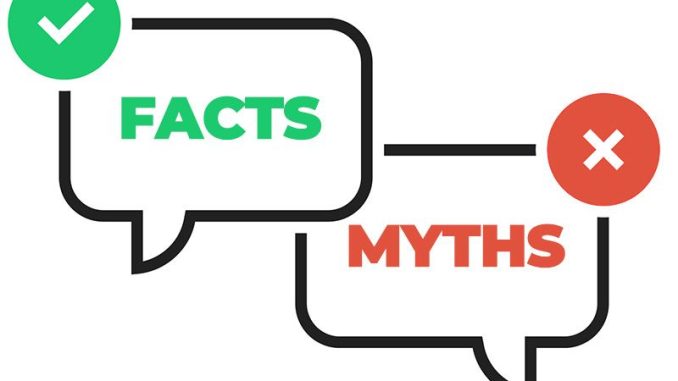
In recent years, CBD (cannabidiol) has gained significant popularity due to its potential health benefits. However, with the increasing interest, several myths and misconceptions about CBD have emerged. This article aims to debunk common CBD myths by presenting factual information and clarifying any misunderstandings surrounding this natural compound.
Myth: CBD Gets You High
One of the biggest misconceptions about CBD is that it can get you high like its close relative, THC (tetrahydrocannabinol). However, this is not true. Unlike THC, CBD does not possess psychoactive properties, meaning it does not alter your mental state or induce a “high.” CBD is derived from hemp plants, which contain minimal levels of THC, typically below 0.3%. Therefore, consuming CBD will not produce any mind-altering effects.
Fact: CBD Offers Various Health Benefits
A common myth surrounding CBD is that it is a cure-all for every ailment. While CBD has shown potential in mitigating a range of health issues, it is essential to understand that it is not a magical solution. Research suggests that CBD may help with chronic pain, inflammation, anxiety, depression, and certain neurological disorders. However, more studies are needed to fully understand its therapeutic potential and effectiveness. It is crucial to consult with a medical professional before using CBD to treat any health condition.
Myth: CBD is Illegal
Another common misconception is that CBD is illegal. While it is true that marijuana-derived CBD, which contains higher levels of THC, remains illegal in some states and countries, CBD derived from hemp is legal in many places. In 2018, the Farm Bill legalized the cultivation and sale of hemp-derived CBD products as long as they contain less than 0.3% THC. However, it is essential to stay informed about the laws and regulations regarding CBD in your specific location.
Fact: CBD Can Interact with Medications
Some individuals believe that CBD is entirely safe and does not interact with any medications. However, this is not entirely true. CBD can interact with certain medications, including blood thinners, antidepressants, and antipsychotics. CBD inhibits certain enzymes responsible for metabolizing these medications, potentially leading to increased levels in the bloodstream. Therefore, it is crucial to consult with a healthcare professional before using CBD alongside any medication to avoid potential adverse effects.
Myth: CBD Works Instantaneously
Many people expect immediate results when using CBD, assuming that it works like a typical prescription medication. However, CBD does not provide instant relief for most conditions. Its effects are usually subtle and can take time to manifest. Factors such as dosage, method of consumption, and individual body chemistry play a role in how long it takes for CBD to take effect. It is essential to be patient and consistent with CBD use before evaluating its effectiveness.
Fact: CBD Quality and Source Matter
Not all CBD products are created equal. The quality and source of CBD can vary significantly. It is crucial to choose CBD products that undergo third-party testing to ensure their purity, potency, and safety. Additionally, it is recommended to opt for CBD products derived from organically grown hemp, free from pesticides and contaminants. Doing thorough research on the brand and reading customer reviews can help ensure you are purchasing a reliable and high-quality CBD product.
Conclusion
Dispelling myths and misconceptions about CBD is vital in promoting accurate information and understanding its potential benefits. CBD does not get you high, offers various health benefits, and is not necessarily illegal. However, CBD can interact with certain medications, and its effects may take time to manifest. Ensuring the quality and source of CBD products is essential for a safe and effective experience. By debunking common CBD myths and providing accurate facts, individuals can make informed decisions about incorporating CBD into their wellness routines.
